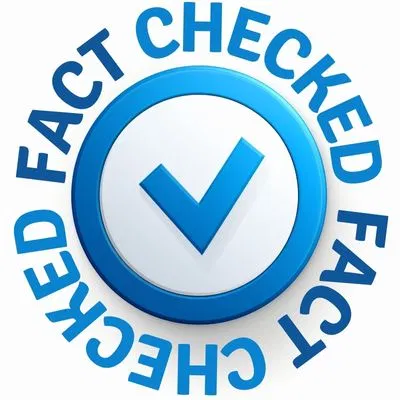11 Types Of Web Applications And How You Can Use Them

Published August 6, 2025
Think all web apps are the same? Think again. From sleek single-page apps to powerhouse e-commerce platforms, there are many types of web applications, each with its own strengths, structure, and ideal use case.
Whether you’re a startup founder, developer, or digital strategist, knowing the different types of web applications can transform how you plan, build, and scale online experiences. But which one is right for your needs?
In this guide, we break down 11 types of web apps, with real-world examples and insights into how you can leverage each. Let’s explore the modern web’s true potential.
What is a Web Application?
Ever used Google Docs or Spotify in your browser without installing anything? That’s a web application. It’s software you use online, no download, no fuss. Unlike traditional desktop apps, web apps run in browsers and are powered by a blend of client-side code (HTML, CSS, JavaScript) and server-side languages (like PHP or Node.js).
What makes them magical? They’re available anytime, anywhere, on any device. In a world obsessed with convenience, web apps offer instant gratification. Whether you’re writing an article or shopping for shoes, a web app is likely powering that experience, fast, flexible, and built for the connected era.
What are the Different Types of Web Applications?
Web apps aren’t one-size-fits-all, they come in distinct flavors.
- Static web apps are like digital flyers, simple, unchanging.
- Dynamic ones are alive, reacting to users in real time.
- SPAs (Single-Page Applications) feel like magic, no reloads, just smooth, fast updates.
- MPAs (Multi-Page Applications) reload pages the old-school way but scale better for massive sites.
- PWAs blur the line between websites and mobile apps, while CMSs empower non-techies to manage content.
- Then there are RIAs, animated web apps, eCommerce platforms, and JavaScript-powered juggernauts.
The variety isn’t just about code, it’s about how users experience the web, and how businesses build for impact.

What are the Popular Examples of Web Applications?
Let’s talk about names you know.
- Google Docs lets you collaborate in real time, no software required, pure web wizardry.
- Gmail? A seamless SPA that keeps your inbox moving fast.
- Facebook and Trello work like apps but live in your browser, updating dynamically without skipping a beat.
- Then there’s Spotify’s Web Player, instant access to your playlist, even on a borrowed laptop.
These aren’t just websites, they’re powerful, responsive tools redefining how we communicate, create, and consume. The best web apps fade into the background, delivering pure functionality without friction. They’re the unsung heroes of your digital day.
What are the Benefits of Web Applications?
Why should businesses and users alike care about web apps? Three words, convenience, scale, speed. Web apps are always-on, accessible from any device, and require no installation, hello frictionless user experience.
For businesses, they’re cost-effective to build and maintain. Want to scale fast? Web apps love the cloud. Want real-time collaboration or broad device support? Done. They update automatically and reach users wherever there’s internet.
Compared to mobile apps, web apps break the platform barriers. They’re the Swiss Army knife of digital strategy, versatile, powerful, and user-first. In a remote-first world, they’ve become essential infrastructure, not just nice-to-haves.
What are the Challenges of Web Applications for Businesses?
Here’s the part nobody wants to admit, web apps have flaws. They’re prone to cyberattacks, yes, even the sleekest ones. From data breaches to injection threats, security is a beast you must tame.
And performance? If you skimp on optimization, users bounce faster than a bad date. Worse yet, most web apps rely on an internet connection. No signal, no service. That’s not ideal if your users are off the grid.
Plus, not all devices treat browsers the same way, testing can be a nightmare. Web apps shine bright, but they require grit, vigilance, and constant iteration to stay effective.

How To Develop a Web Application?
Building a web app isn’t just about coding, it’s a strategy game.
- Start by defining your user and purpose. Who are they? What problem are you solving?
- Then sketch out your core features and pick your tech stack wisely, think React or Vue for the front end, Node.js or Django for the back end.
- You’ll need a database (hello PostgreSQL or MongoDB) and a clean, responsive UI.
- Develop in iterations, test ruthlessly, and launch only when ready.
Post-launch? The real work begins, updates, security patches, and user feedback loops. Great web apps are never “done”, they evolve with their audience.
FAQs
What are the types of web applications?
There are different types of web applications like static web apps, dynamic web apps, eCommerce web apps, portal web apps, and CMS web apps. Each type works in its own way. For example, eCommerce apps help you shop online, while portal apps show news and updates. These types of web applications help people do many things on the internet.
What is a web-based application and how is it typically used?
A web-based application is a program you use through a web browser like Chrome. You don’t need to download it, it runs on the internet. People use web applications to play games, watch videos, shop, or learn.
Is Netflix a web application?
Yes, Netflix is a web application. You can watch movies and shows on it using a web browser. It runs on the internet and doesn’t need to be installed.
What type of application will you use to access web pages?
You use a web browser to open and view web pages. It lets you visit websites, watch videos, and read news online.
What are 5 examples of browsers?
Here are five web browsers:
- Google Chrome
- Mozilla Firefox
- Safari
- Microsoft Edge
- Opera
Final Thoughts
There are many types of web applications that help people and businesses every day. From shopping online to watching videos or managing work, web apps make life easier. They work on the internet and don’t need to be downloaded. You just need a browser.
If you want to grow your business online, web apps can help a lot. At Correct Digital, we build smart web apps, design great websites, and help people find your business on Google and social media. Let us help your business shine online.
Want to learn more? Just give us a call or send a message today.
Hire The Digital Marketing Experts
We take online businesses and turn them into online empires by employing smart digital marketing strategies. Our team of experts are trained in a myriad of marketing skill including SEO to help you rank higher in search results, and ad management to ensure your message gets seen by the people you want. Need a business website that attracts business? We also specialize in website design and online sales optimization to help your business grow like never before.

This Content Has Been Reviewed For Accuracy By Experts
Our internal team of experts has fact-checked this content. Learn more about the editorial standard for our website here.

About The Author
With years of hands-on marketing experience, Julie Fortuna enjoys sharing real insights and practical tips. Stay ahead in the fast-changing world of digital marketing by keeping up with her latest work.



